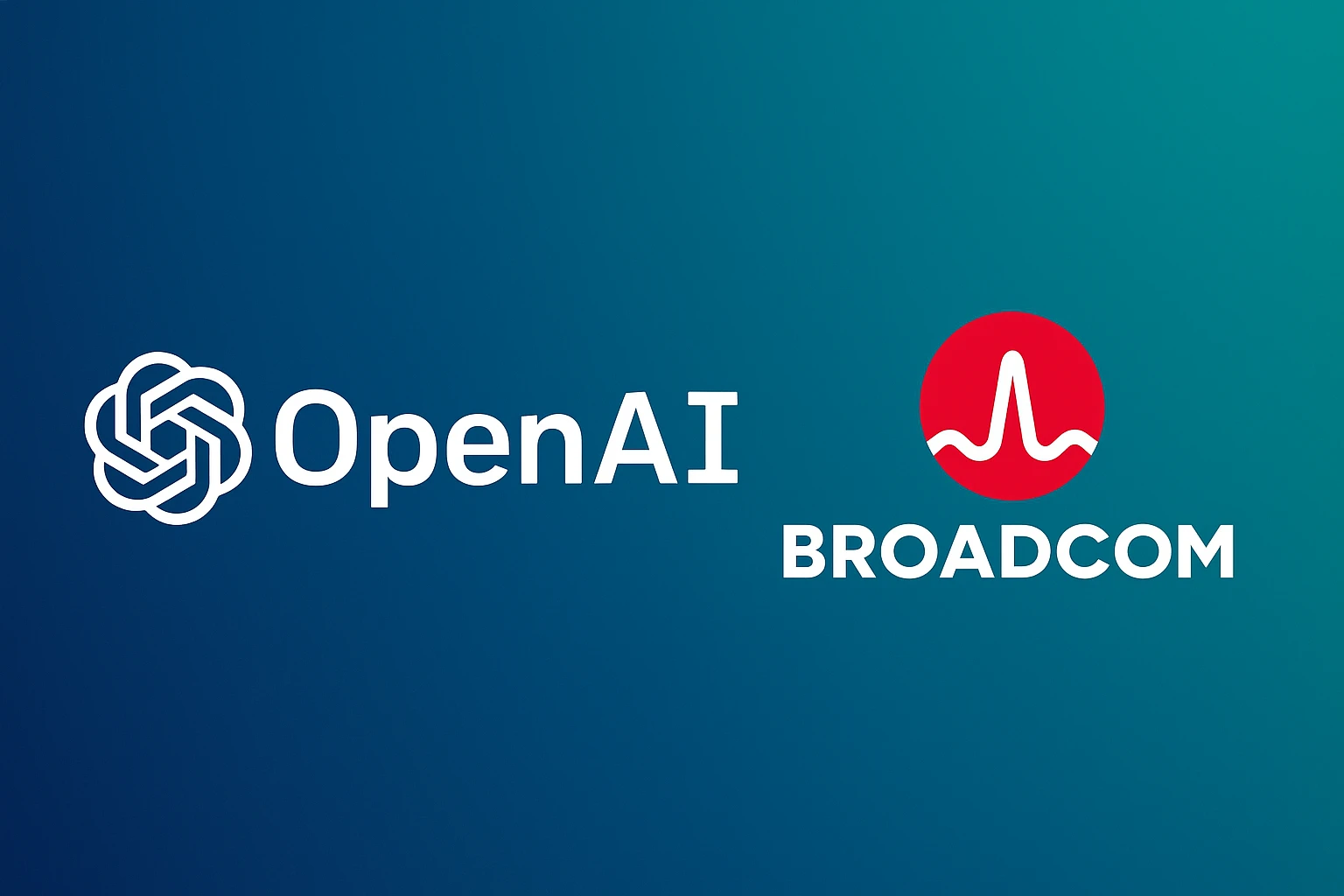|
Getting your Trinity Audio player ready... |
In a major move for the artificial intelligence industry, OpenAI has partnered with Broadcom Corporation to design and develop custom AI chips that will power its next generation of models, including ChatGPT and other advanced OpenAI applications.
This collaboration marks a turning point for both companies — blending OpenAI’s cutting-edge research in artificial intelligence with Broadcom’s expertise in semiconductor engineering. The goal: to create custom silicon chips optimized for the massive computational demands of next-generation AI models.
Why OpenAI Chose Broadcom
As demand for AI tools like ChatGPT continues to surge, the need for efficient and scalable AI chip architectures has become crucial. Broadcom Corp, known for its deep experience in networking and semiconductor design, brings the infrastructure and manufacturing capabilities that can help OpenAI move beyond reliance on third-party chipmakers.
According to industry experts, this OpenAI–Broadcom collaboration is expected to reduce costs, improve performance, and enhance energy efficiency for OpenAI’s data centers. It also positions Broadcom among the top AI chips companies in the world, joining the ranks of Nvidia, AMD, and Intel in powering the future of generative AI.
The Rise of Custom AI Chips
Custom AI chips are becoming a game-changer for organizations running large-scale machine learning models. Traditional processors struggle to handle the massive computations required by deep learning networks. By creating specialized hardware, companies like OpenAI and Broadcom can fine-tune performance for their unique workloads — improving both speed and efficiency.
Industry analysts note that AI chip makers are now competing to deliver the best blend of power, cooling, and scalability. Broadcom’s entry into this market could shake up the current landscape, introducing new competition to dominant GPU providers.
What This Means for OpenAI and the AI Industry
For OpenAI, this partnership signals a strategic step toward independence and innovation. With custom silicon built specifically for its models, OpenAI can train and deploy ChatGPT and other applications faster and more cost-effectively.
For Broadcom, it’s an opportunity to strengthen its position as a key player among the top AI chip companies, expanding its portfolio beyond networking and storage chips.
The collaboration also highlights a broader trend — major AI developers increasingly moving toward in-house chip design to gain better control over hardware performance and supply chains.
A Glimpse Into the Future
As OpenAI and Broadcom push forward with their partnership, the AI world could witness a new era of performance optimization. Future OpenAI apps powered by Broadcom’s silicon may deliver smarter, faster, and more responsive AI experiences for users worldwide.
This alliance isn’t just about technology — it’s about redefining how intelligence is built, trained, and delivered at scale.
This collaboration marks a turning point for both companies — blending OpenAI’s cutting-edge research in artificial intelligence with Broadcom’s expertise in semiconductor engineering. The goal: to create custom silicon chips optimized for the massive computational demands of next-generation AI models.
Why OpenAI Chose Broadcom
As demand for AI tools like ChatGPT continues to surge, the need for efficient and scalable AI chip architectures has become crucial. Broadcom Corp, known for its deep experience in networking and semiconductor design, brings the infrastructure and manufacturing capabilities that can help OpenAI move beyond reliance on third-party chipmakers.
According to industry experts, this OpenAI–Broadcom collaboration is expected to reduce costs, improve performance, and enhance energy efficiency for OpenAI’s data centers. It also positions Broadcom among the top AI chips companies in the world, joining the ranks of Nvidia, AMD, and Intel in powering the future of generative AI.
The Rise of Custom AI Chips
Custom AI chips are becoming a game-changer for organizations running large-scale machine learning models. Traditional processors struggle to handle the massive computations required by deep learning networks. By creating specialized hardware, companies like OpenAI and Broadcom can fine-tune performance for their unique workloads — improving both speed and efficiency.
Industry analysts note that AI chip makers are now competing to deliver the best blend of power, cooling, and scalability. Broadcom’s entry into this market could shake up the current landscape, introducing new competition to dominant GPU providers.
What This Means for OpenAI and the AI Industry
For OpenAI, this partnership signals a strategic step toward independence and innovation. With custom silicon built specifically for its models, OpenAI can train and deploy ChatGPT and other applications faster and more cost-effectively.
For Broadcom, it’s an opportunity to strengthen its position as a key player among the top AI chip companies, expanding its portfolio beyond networking and storage chips.
The collaboration also highlights a broader trend — major AI developers increasingly moving toward in-house chip design to gain better control over hardware performance and supply chains.
A Glimpse Into the Future
As OpenAI and Broadcom push forward with their partnership, the AI world could witness a new era of performance optimization. Future OpenAI apps powered by Broadcom’s silicon may deliver smarter, faster, and more responsive AI experiences for users worldwide.
This alliance isn’t just about technology — it’s about redefining how intelligence is built, trained, and delivered at scale.







